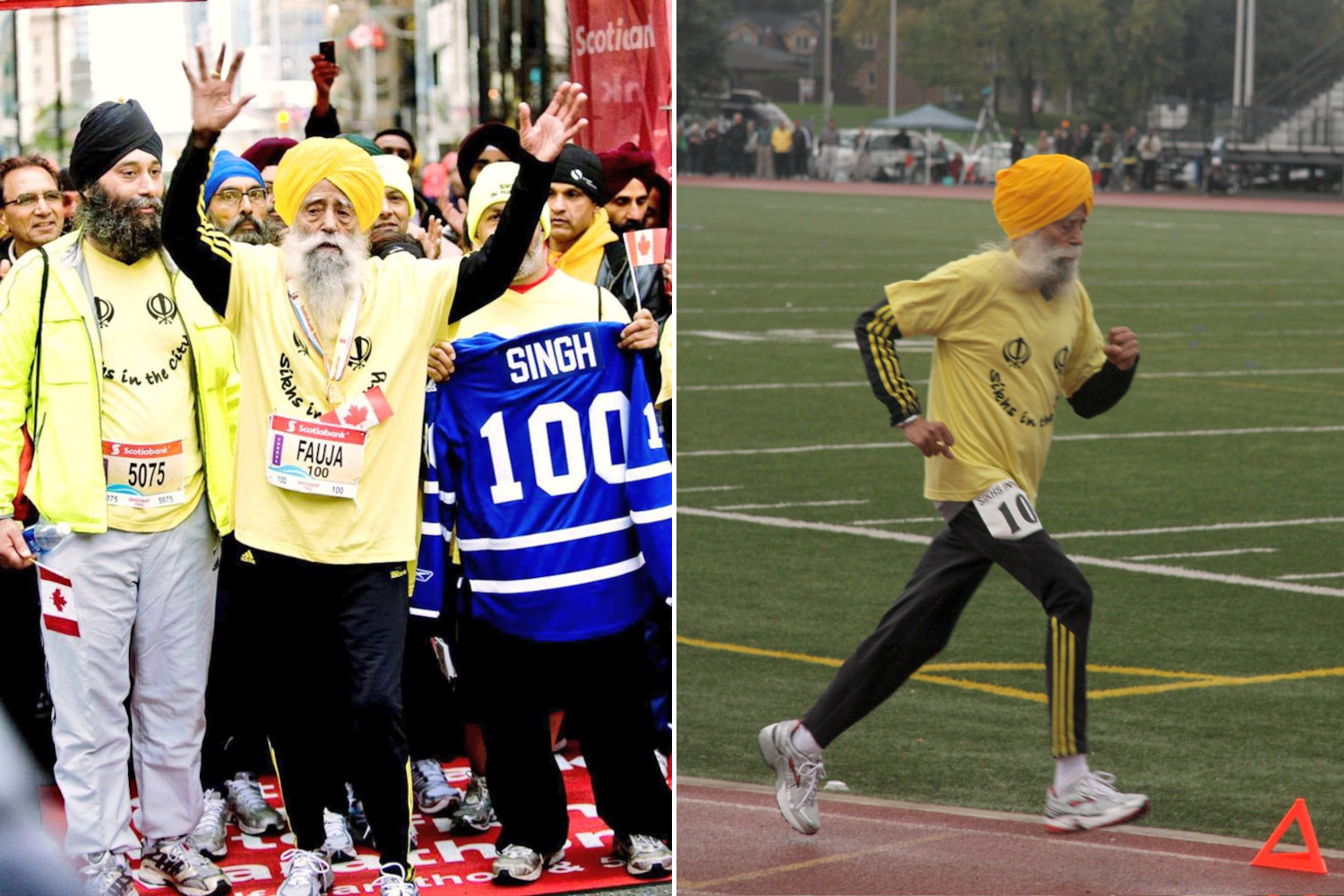Fauja Singh, the world's oldest marathon runner, has died at 114 after being hit by a car in his native village. His life redefined age, strength, and purpose through running and humility.

A tragic end for a legendary life
Fauja Singh, known across the globe as the world’s oldest marathon runner, has died at the age of 114. In a cruel twist of fate, his extraordinary life came to an end not from age or illness, but from an accident. He was hit by a car in his native village of Beas Pind, in Punjab, while walking along a road. The driver fled the scene, and local authorities have launched an investigation to identify the perpetrator.
Singh’s death marks more than the passing of a man; it closes the final chapter on a life that inspired generations across continents. Born in 1911, Singh held both British and Indian citizenship and continued to run competitive marathons well past his 100th birthday—defying logic, expectations, and biology.
We are saddened to hear of the passing of Fauja Singh, the oldest finisher in London Marathon history 🖤 Fauja, who…
Posted by TCS London Marathon on Tuesday, July 15, 2025
Starting at 89: the second life of Fauja Singh
Most people begin to wind down in their 80s. Fauja Singh, instead, laced up his running shoes. After the death of his wife and son, grief pushed him toward movement—a simple act that turned into a global phenomenon. At age 89, he started running, not just to stay fit, but to find a reason to keep going.
Between 2000 and 2013, Singh completed nine marathons, including the 2011 Toronto Waterfront Marathon. That year, he became the first centenarian to officially complete a full marathon. Although the Guinness World Records didn’t validate the feat—citing the lack of a birth certificate from 1911—his achievement was recognized far and wide. British records list his birth date as April 1, 1911, and even Queen Elizabeth sent him a personal congratulatory letter when he turned 100.
He wasn’t just a runner. He was an icon. Singh carried the Olympic torch during the 2012 London Games, became a face of Adidas’s “Impossible is Nothing” campaign, and was invited to Buckingham Palace by the Queen. But accolades were never what defined him. It was his humility, radiant joy, and boundless energy that won people over.
World's Oldest Marathon Runner has passed away 🙏🏽
Born as a child who suffered from weak and thin legs, unable to walk before the age of 5 – Fauja Singh, who moved to England in 1992 after the death of his wife with his son from his birth village Beas Pind, near Jalandhar in… pic.twitter.com/9dlThK1B1c
— Basit Subhani (@BasitSubhani) July 16, 2025
Honoring the turbaned tornado
Singh’s running club, Sikhs in the City, has already announced plans to honor his memory. On March 29, 2026, they will host the Fauja Singh Birthday Challenge, an event designed to celebrate his legacy and raise funds to build a new clubhouse in Ilford, London—where Singh trained for years.
There’s something poetic in that: a space dedicated to movement, to purpose, and to community. It’s the kind of project Singh himself would have supported, quietly, generously, with one of his signature smiles.
The vegetarian philosophy behind his longevity
Asked about the secret to his long life, Singh’s answer was disarmingly simple: “Eat less, run more, and be happy.”
He avoided alcohol and tobacco, walked every day, and followed a strict vegetarian diet. Not for trendiness, but as a personal and spiritual discipline. His meals were modest and always made with fresh, natural ingredients. He saw food not just as fuel, but as a form of self-respect and clarity.
In a 2025 interview with the BBC, just a month before his death, Singh said he still made a point to go on daily walks. It was during one of these quiet moments of movement that tragedy struck. But in a way, he died doing what he loved—moving forward.
tSrength built on fragility
Ironically, Singh was not a strong child. He didn’t walk properly until the age of five and struggled with physical weakness. And yet, he lived through wars, loss, and displacement—emerging not broken, but stronger. He ran not to escape the world, but to embrace it.
He gave away much of his earnings to charity, supported environmental causes, and spoke openly about the importance of living a modest life. The nickname “Turbaned Tornado” wasn’t just about the visual—he always ran with his signature turban—it was about his whirlwind impact on the world around him.
Singh proved, again and again, that age is just a number when matched with discipline, meaning, and joy. His story is one that will be passed on, not as a tale of speed, but of soul.
